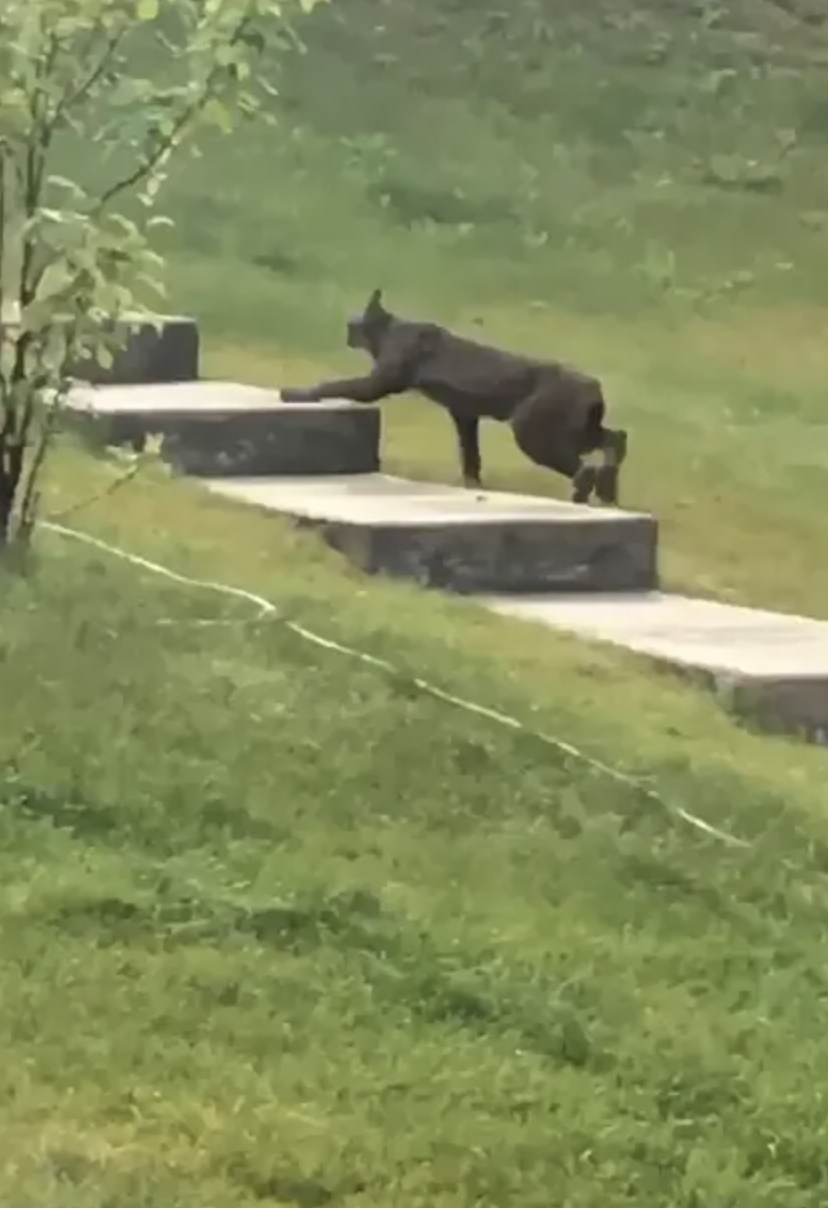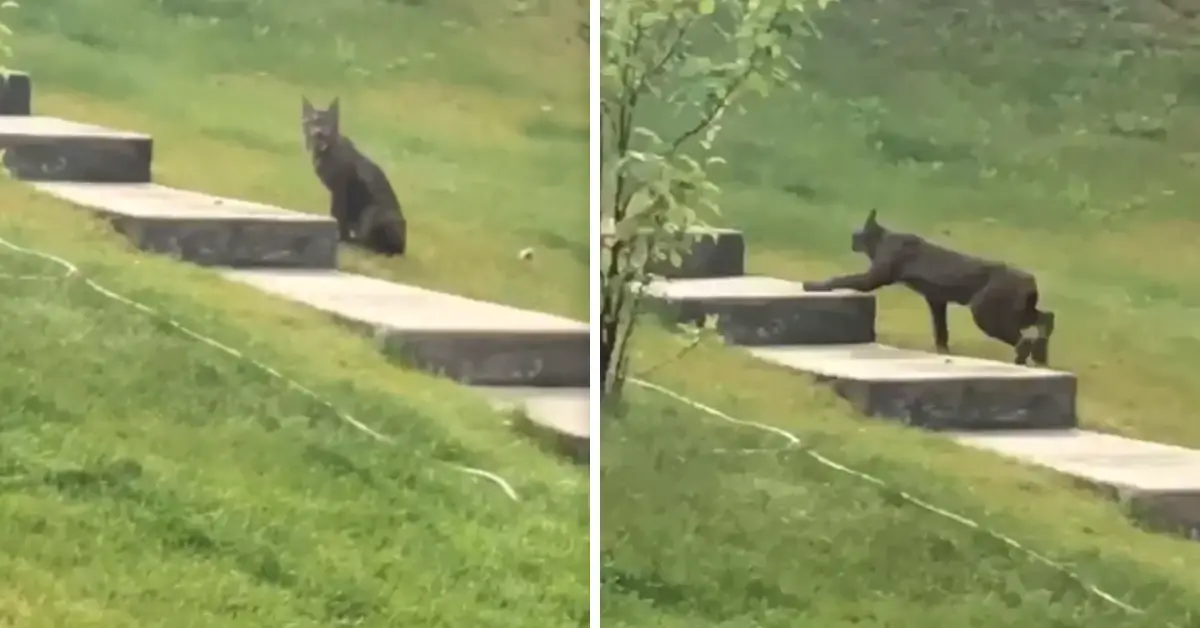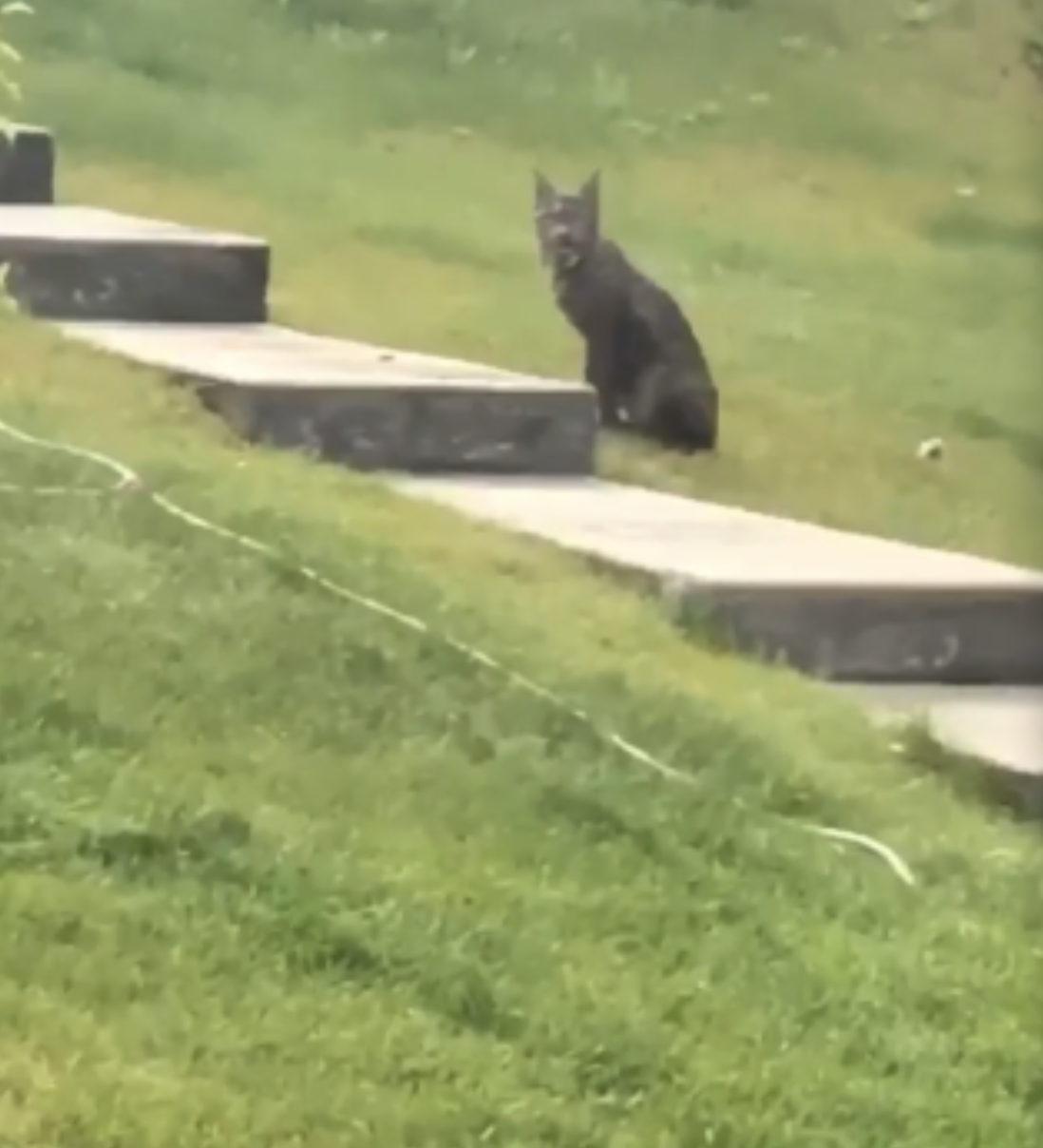
The Canada lynx is among the most elusive creatures on Earth, so an encounter with the gorgeous feline is definitely a sight to behold. Due to their elusiveness, these wild cats even got themselves a nick-name as the gray ghost, so you can imagine how difficult can be to spot one in the wild, but let alone in a residential neighborhood.

Nevertheless, this woman in Yukon Territory, Canada had the most unexpected encounter with a black Canada lynx, just outside her house in Whitehorse. She managed to capture a glimpse of the majestic creature, and it looks otherworldly. In fact, this is the very first time a black Canada lynx was captured on camera!

The short video footage, filmed in August 2020, only unfolded now as it was used as part of a scientistic study. The paper was recently published in the journal Mammalia, and it studied the presence of melanism in the Canada lynx. The study was lead by Thomas Jung.
While at first, everyone, including the scientists, were unsure this might actually be a Canada lynx, given its odd color, it was finally confirmed that the creature is indeed a Canadian lynx, and its black fur is due to melanism. Although this rare condition is present in more than a third of felines, it has never been noticed at the Canada lynx, until now.

“It had a black coat containing whitish gray guard hairs throughout, as well as whitish gray hairs in the facial ruff and the rostrum and dorsal regions,” the study reads. “There are only a small number of records of coat color polymorphisms in the genus Lynx.”
Unfortunately, the black coat is just as unhelpful for the lynx as spectacular it looks, and that’s because it lost its ability to camouflage because of this condition, just like the vast majority of animals that suffer of melanism.
“The adaptive significance of melanism in lynx is unknown,” the author of study wrote. “The loss of camouflage when hunting during winter is likely maladaptive.”
Watch the black lynx here:
(h.t:nationalgeographic)



